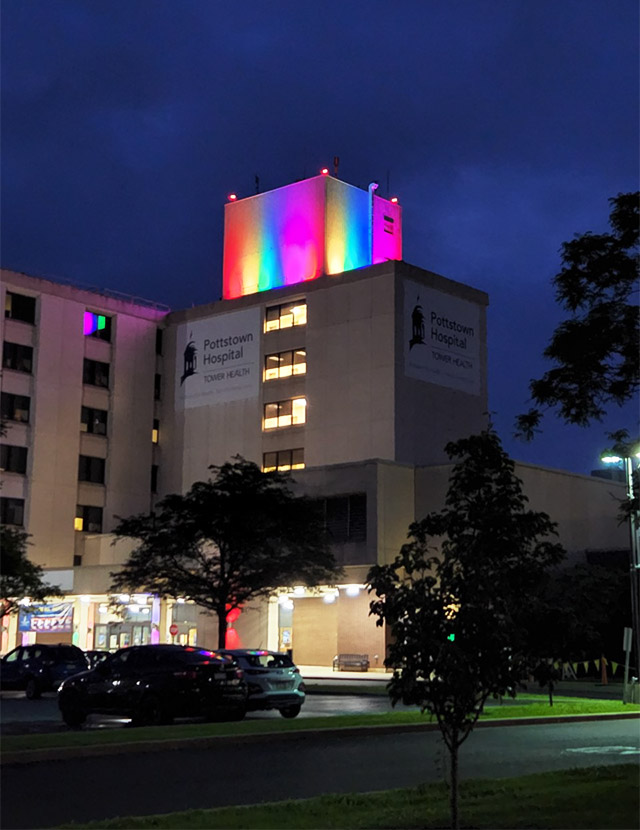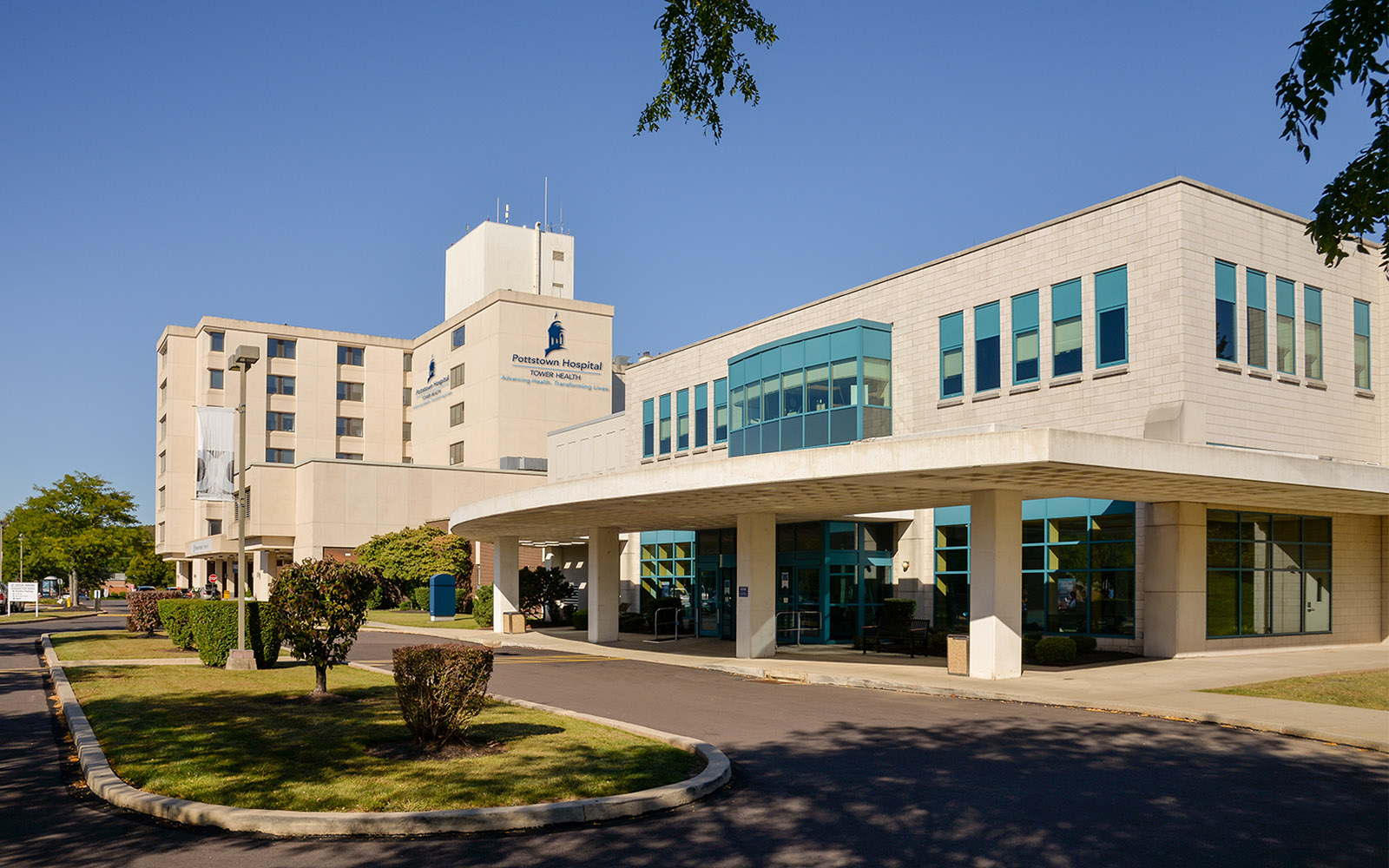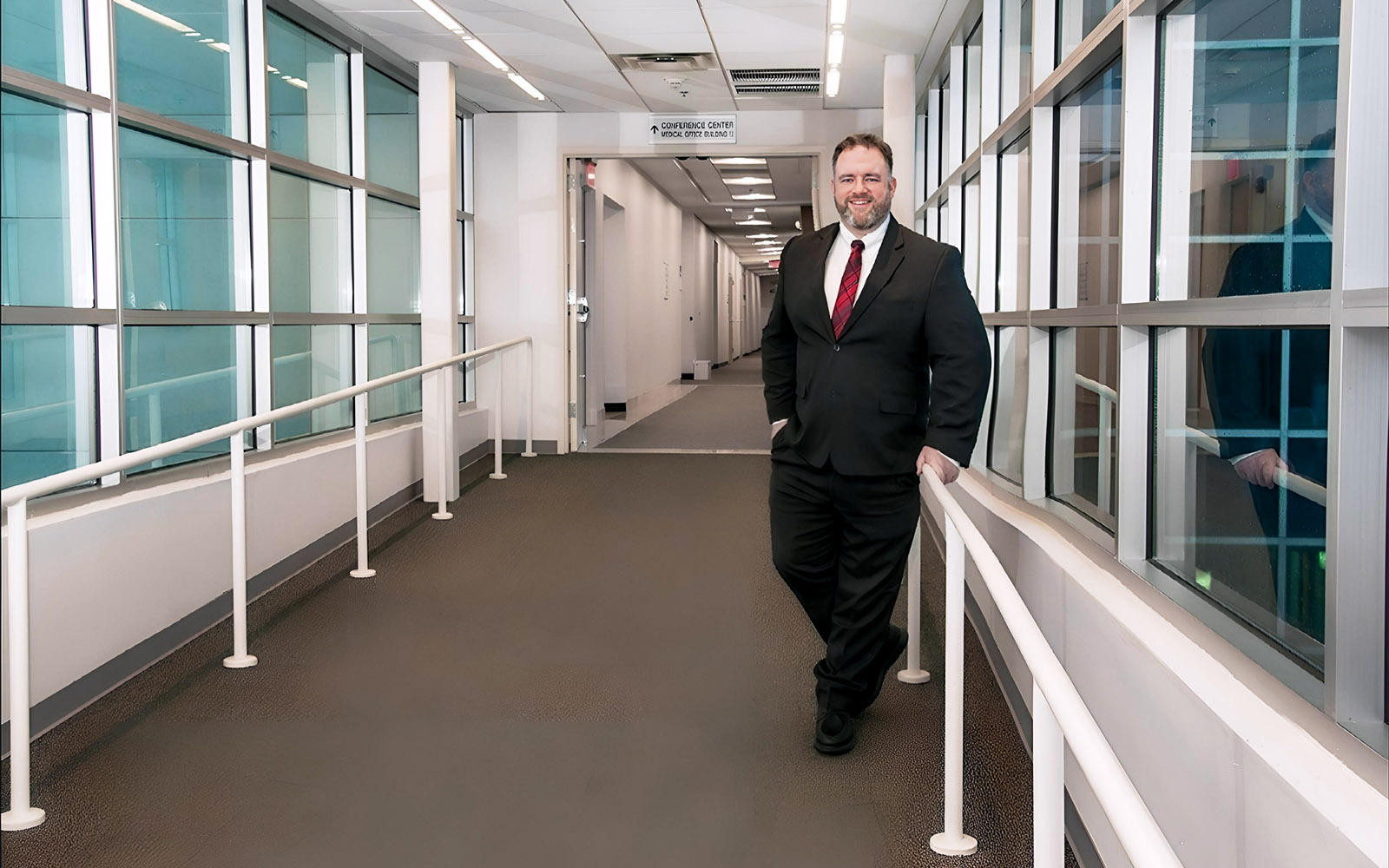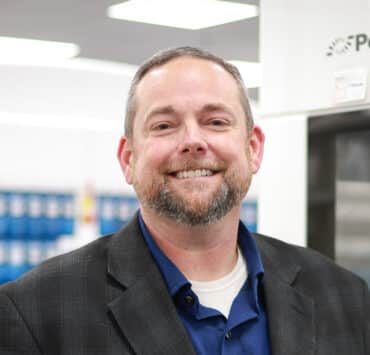Daniel Keller had already built a successful career as a master carpenter and a businessowner when he turned his attention toward healthcare. That shift in focus was only the first step in a total career transformation.
“I worked my way up into being a project lead and then a project manager,” Keller says of his early days in the industry. “In the midst of that, I made the decision to return to school. I completed my bachelor’s in 2016, and very shortly thereafter, I was recruited by Southern Illinois Healthcare to be their corporate facilities director. I worked there for three years, and in those three years, I pursued my MBA.”
It was upon graduating with his MBA in 2019 that Keller connected with his now employer, Tower Health. The organization hired him to serve as facilities director at Pottstown Hospital, one of the four hospitals in southeastern Pennsylvania that form the cornerstones of Tower’s healthcare system. For Keller, the role meant relocating from the Midwest and taking on a fresh set of facilities challenges.
Keller has grown with Tower over the past several years, receiving facilities oversight of Phoenixville Hospital in early 2023 and of the entire healthcare system the following January. As system director, he manages facilities operations not only Tower’s four hospitals, but also a vast array of medical office buildings and urgent care centers across the region.
“My goal is to make it so the operational status is the same at any one of the Tower [Health] facilities that you go to,” he says. “One of the things that we ran into coming out of COVID, especially during the employment crisis, was that our own hospitals were poaching employees from each other. That’s when you know you need to systemize.”
By standardizing employee compensation tiers, expectations, and more, Keller is aiming to put an end to that issue. But it’s been just as hard to get employees into the system as to keep them in their roles. “Finding skilled staff is no longer a matter of putting out a job ad and waiting for them to reach out to you. In the current environment, we are going out to find them, and in some cases, we’re working with them to transition or modify their career a little bit,” says Keller. “I’m also hoping to develop a career-pathing system for all the trades, with each one having multiple gradients, to give employees skin in the game and make it worthwhile for them to stay.”
Beyond his efforts to find and retain talent, Keller has had his hands full with Tower’s facilities themselves from the get-go. “When I came into Pottstown, the facility had significant life safety challenges, aside from aesthetics,” he says. “I knew that the ‘unsexy’ stuff needed to happen first. For the next eighteen months, it was going to be a lot of infrastructure and in-the-walls kind of work.”
In all his projects at Tower, Keller has prioritized efficiency, from both an energy and a cost perspective. “We know, as an industry, that climate change is happening and we’re short on time, but the horrible reality of the situation is that everything has to be done with the consideration of expense,” he says. “One of my goals is blending the two, and the way that I win the arguments is fiscally, pretty much every time.”

Keller’s track record of identifying cost-effective facilities solutions dates to before he joined Tower. Among his proudest career achievements, he cites an operating room renovation at Touchette Regional Hospital in Illinois that he completed at an extraordinarily low cost, along with the recent rejuvenation of Pottstown’s chiller and condenser plant.
When the initial estimate for the latter project came in at around $5 million, he pivoted by breaking down the process into more attainable steps. “Rather than $5 million, we spent a final target cost of about [$1.8 million],” he says. “We got the same plant and the same efficiency; it just took a little bit longer and the logistics were a little bit more complicated. But as an added benefit, we reduced waste materials by 85 percent.”
In the post-pandemic healthcare landscape, there are no shortages of complications, from budgetary limitations to regulatory hurdles to supply chain delays. Fortunately, Keller has never been one to shy away from a challenge. He plans to continue using fiscal and operational arguments to make the case for change, whether that be insourcing staff to lower contractor costs or installing green fixtures and engineering green solutions to reduce Tower’s energy spend and environmental impact.
“I’m trying to add jobs versus remove jobs while looking for opportunities to get rid of legacy expenses that don’t benefit the organization,” Keller says. “I want to lower our carbon footprint, be a better neighbor, and find ways for us to get out of the business of contributing to global warming. It’s happening a little bit at a time, but I know that we’re on the right track.”
For nearly thirty years, EARTHRES has been a leader in providing high quality engineering and environmental consulting services. With our collective two hundred years of expertise, we ensure your healthcare facility meets every EPA, state and local regulatory requirement—be it air quality, EPCRA, waste management, or water quality. Our proven Team of Teams approach means we’re not just consultants; we’re part of your team, tailoring our collaboration to the needs of professionals like Dan Keller, and other hospital facilities managers. Together, we keep each hospital at the forefront of regulatory compliance. With EARTHRES, your hospital has regulatory peace of mind.




